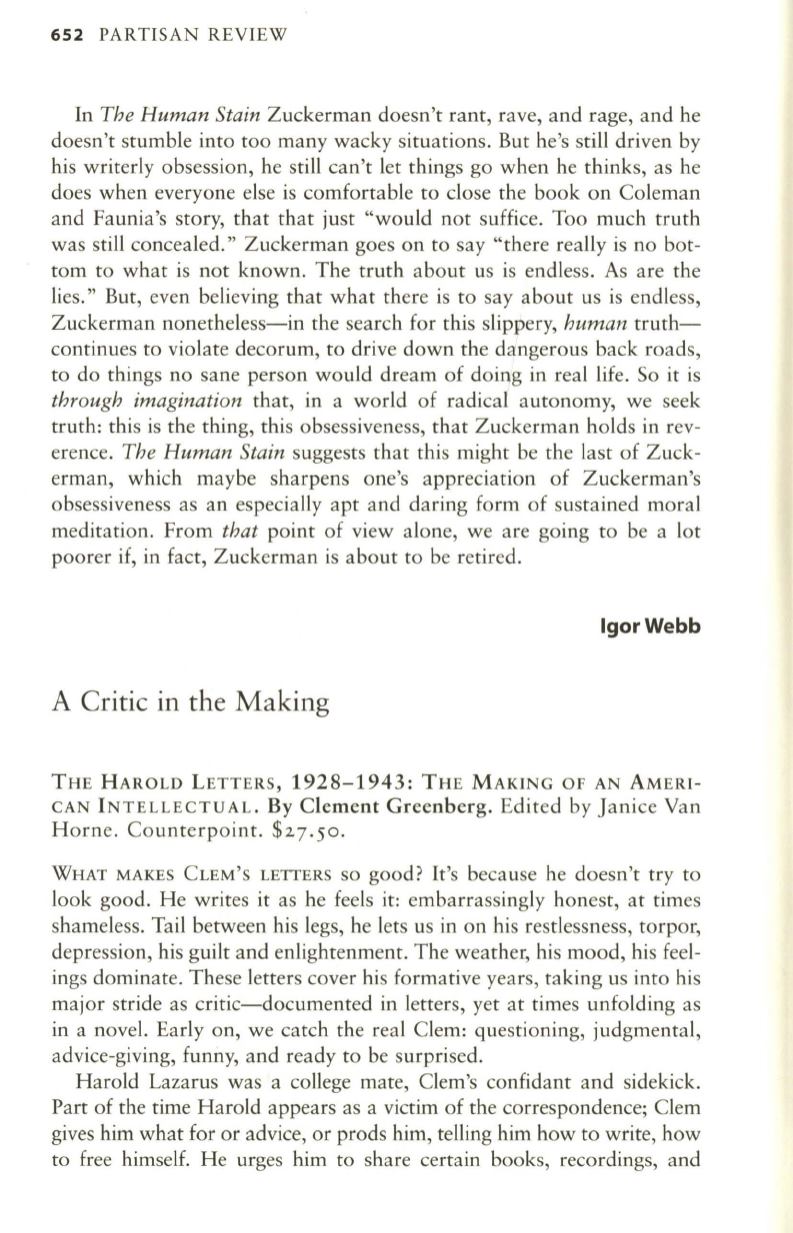
652
PARTISAN REVIEW
In
The Human Stain
Zuckerman doesn't rant, rave, and rage, and he
doesn't stumble into too many wacky situations. But he's still driven by
his writerly obsession, he still can't let things go when he thinks, as he
does when everyone else is comfortable to close the book on Coleman
and Faunia's story, that that just "would not suffice. Too much truth
was still concealed ." Zuckerman goes on to say "there really is no bot–
tom to what is not known. The truth about us is endless. As are the
lies." But, even believing that what there is to say about us is endless,
Zuckerman nonetheless-in the search for this slippery,
human
truth–
continues to violate decorum, to drive down the dangerous back roads,
to do things no sane person would dream of doing in real life. So it is
through imagination
that, in a world of radical autonomy, we seek
truth: this is the thing, this obsessiveness, that Zuckerman holds in rev–
erence.
The Human Stain
suggests that this might be the last of Zuck–
erman, which maybe sharpens one's appreciation of Zuckerman's
obsessiveness as an especially apt and daring form of sustained moral
meditation. From
that
point of view alone, we are going to be a lot
poorer if, in fact, Zuckerman is about to be retired.
Igor Webb
A Critic in the Making
THE HAROLD LETTERS,
1928-1943:
THE MAKING OF AN AMERI–
CAN INTELLECTUAL. By Clement Greenberg. Edited by Janice Van
Horne . Counterpoint.
$27 . 50 '
WHAT MAKES CLEM'S LETTERS so good? It's because he doesn't try to
look good. He writes it as he feels it: embarrassingly honest, at times
shameless. Tail between his legs, he lets us in on his restlessness, torpor,
depression, his guilt and enlightenment. The weather, his mood, his feel–
ings dominate. These letters cover his formative years, taking us into his
major stride as critic-documented in letters, yet at times unfolding as
in a novel. Early on, we catch the real Clem: questioning, judgmental,
advice-giving, funny, and ready to be surprised.
Harold Lazarus was a college mate, Clem's confidant and sidekick.
Part of the time Harold appears as a victim of the correspondence; Clem
gives him what for or advice, or prods him, telling him how to write, how
to free himself. He urges him to share certain books, recordings, and


